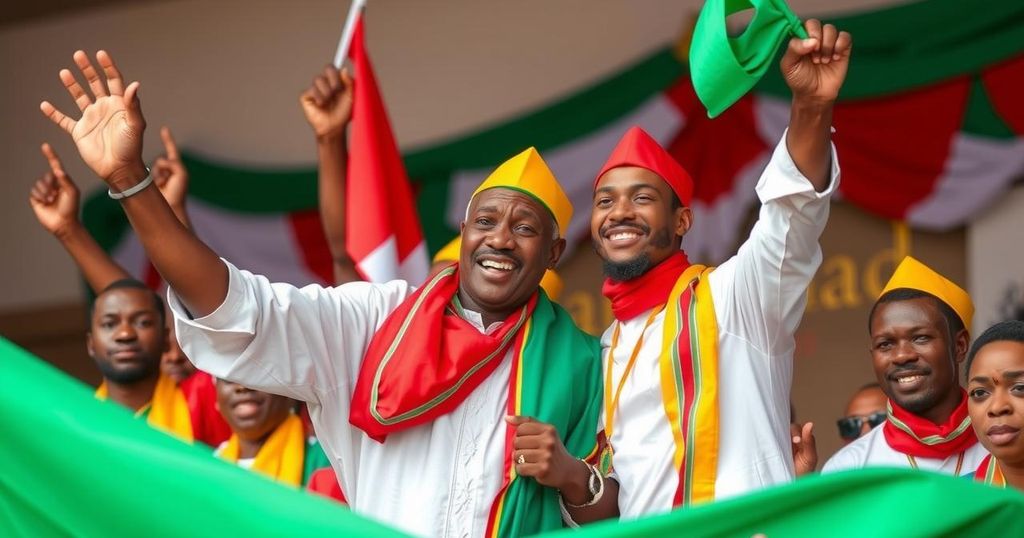Chad’s Ruling Party Secures Parliamentary Majority Amid Opposition Boycott

Chad’s ruling Patriotic Salvation Movement party won 124 out of 188 parliamentary seats in a recent election boycotted by main opposition parties. Voter turnout was reported at 51.5%. This election is part of a transitional process following Mahamat Idriss Deby’s ascension to power post-2021. President Deby claimed elections would facilitate decentralization, yet critics termed the process a ‘charade’ amid existing security challenges.
In a significant turn of events during the recent parliamentary elections in Chad, the ruling Patriotic Salvation Movement party has emerged victorious, securing 124 of the 188 seats despite a boycott by the main opposition. The voter turnout registered at 51.5%, as reported by Ahmed Bartchiret, the head of the electoral commission. This marks the first parliamentary election in more than a decade and is a pivotal part of the political transition underway following the military ascent of Mahamat Idriss Deby in 2021, following the demise of his father, long-time president Idriss Deby Itno.
President Deby asserted that these elections would herald an era of decentralization, allowing for a broader distribution of power to regional and local governments, a change the Chadian populace has long sought. However, the election was marred by the withdrawal of over ten opposition parties, including the prominent Transformers party, who criticized the electoral process as a “charade.” Moreover, they expressed apprehensions regarding the credibility of the elections, recalling their dissatisfaction with last year’s contested presidential results.
The election is crucial for Chad at a time when the nation faces pressing security issues, including insurgent threats from Boko Haram in the Lake Chad area and deteriorating military relations with France, a historically significant ally. The outcome of the parliamentary election is poised to further entrench President Deby’s power amidst these unresolved challenges.
Chad has recently undergone a political transformation marked by military rule following the death of Idriss Deby Itno, who had presided over the country for thirty years. Since Mahamat Idriss Deby assumed power, a series of elections have been initiated to restore democratic governance. The recent parliamentary elections represent a critical stage in this transition, although they were notably contested by significant opposition factions. The ruling party’s sweeping victory holds implications for the direction of governance and power distribution in Chad amid ongoing security concerns.
The recent parliamentary elections in Chad have resulted in the ruling Patriotic Salvation Movement party claiming a decisive majority, despite the presence of significant opposition boycotts. The implications of this election extend beyond mere governmental control; they reflect broader issues of credibility and representation in Chadian politics. With pressing security challenges confronting the nation, the forthcoming governance phase will be crucial for stability and the realization of democratic aspirations across the country.
Original Source: www.seattletimes.com







